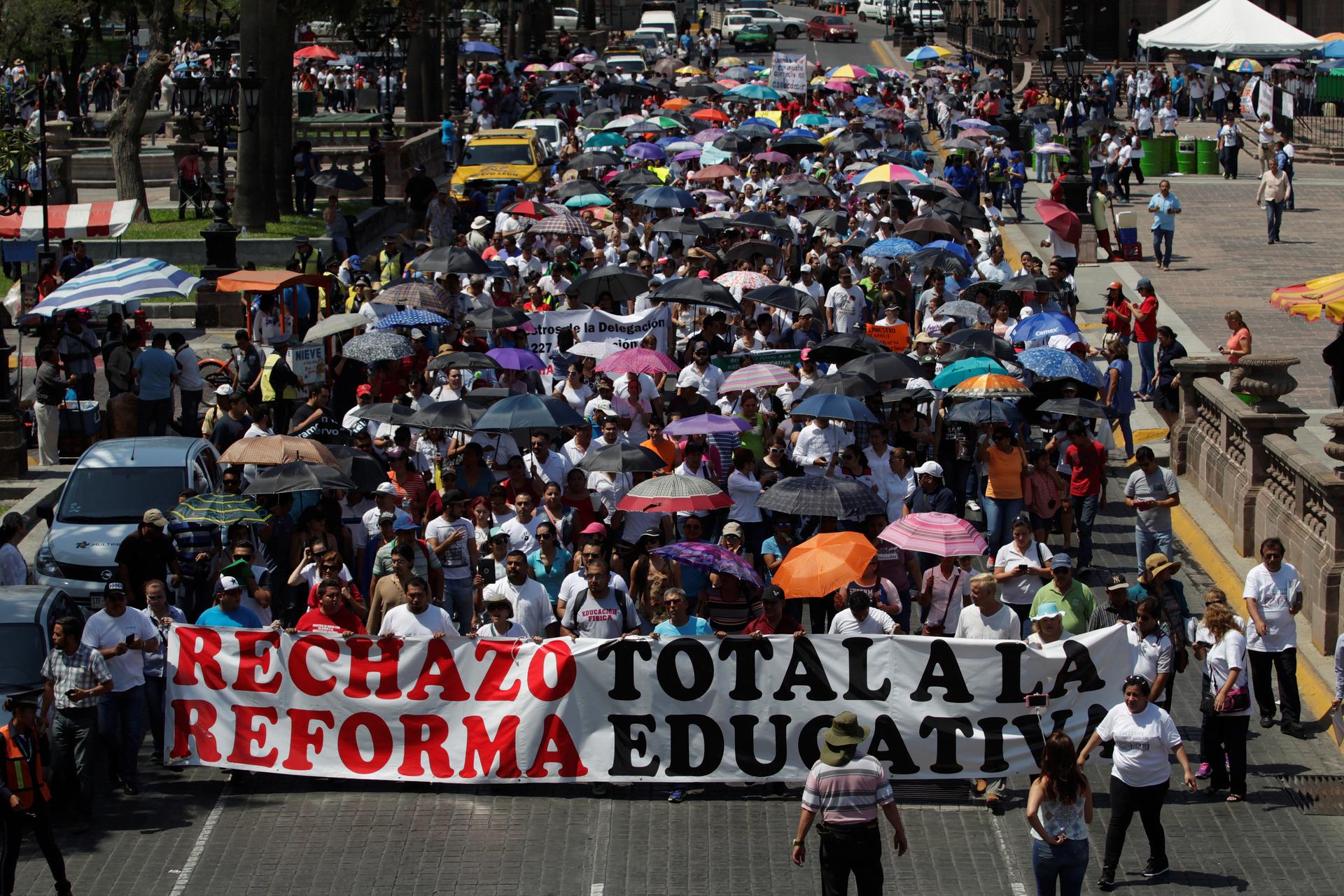Teachers march toward the local congress to protest against President Enrique Pena Nieto's education reform, in Monterrey, Mexico July 1, 2016.
What started off as a seasonal protest in southern Mexico against an educational change is turning into a movement.
On June 19, about 800 state and federal police were deployed to break up a highway blockade in Nochixtlán, a commercial and transportation hub in the indigenous Mixteca region.
Eight people — protesters and townspeople — were killed in the police operation. One month later, no one has been held accountable.
The government initially denied police were armed, then rejected the authenticity of video and photographic evidence, but later claimed police were ambushed and opened fire in self-defense. Uniformed police were the only people photographed aiming firearms in Nochixtlán, about 90 minutes north of the city of Oaxaca.
Another person was killed by gunfire during a police operation at a traffic circle near Oaxaca City.
The protests are over a federal education "reform" bill that ties job security to evaluations and introduces a regime of standardized tests. A dissident union of education workers says it also undermines collective bargaining. And teachers in the bilingual indigenous system object to the reform's favoring of English in secondary language instruction while not assigning curricular value to native Mexican tongues.
Teachers in Mexico’s poorer southern states say the change fails to take into account the extenuating circumstances, like schools that lack basic infrastructure and students struggling with malnutrition.
The use of deadly force against a relatively routine form of protest, plus the shifting official statements angered many people, including those who hadn't necessarily supported the teachers' protest up to that point. The outrage was particularly notable in rural, indigenous-majority areas.
Within days of what many here call the Nochixtlán Massacre, the secretary of indigenous affairs resigned, thousands of indigenous people staged the largest march in recent memory in their territory, Zapotec authorities in the Sierra Norte area signed onto a letter of protest and local officials in the Mixteca region were organizing a response.
The Nochixtlán killings have brought together municipal and agrarian authorities from dozens of rural towns in what is shaping up to be an indigenous-led opposition movement. A common grievance among local opponents to controversial projects — such as mines, dams and wind farms — is that the federal government has failed to consult indigenous populations prior to approving major economic development initiatives within their territories. Indigenous authorities say that under International Labor Organization Convention 169, the Mexican government must first seek approval from indigenous assemblies before giving a green light to development projects on native lands.
Up until now, resistance has been relatively isolated, focused more on opposition to specific projects, rather than the administration's economic and reform agenda in general. But that's changed over the course of the past month.
Municipal and agrarian authorities from Oaxaca took their grievances on the road this week in the form of a caravan to Mexico City. Among the central demands of the group; "respect for territory, internal governance systems, biodiversity, the right to water, to community media, and municipal autonomy."
Communities that have resisted major economic projects with government permission and international financing have experienced varying degrees of reprisals, from stern warnings about grave consequences to the imprisonment or murders of opposition leaders. For them, the events in Nochixtlán are a veiled threat that the government is willing to use deadly force to impose its agenda.
Our coverage reaches millions each week, but only a small fraction of listeners contribute to sustain our program. We still need 224 more people to donate $100 or $10/monthly to unlock our $67,000 match. Will you help us get there today?
